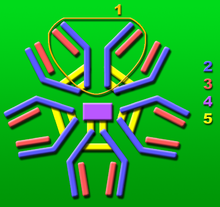Dr. Jatin Mehta, Ph.D
Our endeavor here at grassroots academy is to make erudite scholars out of students and to fulfill this vision, we want to make the teaching a very interactive activity so as to inculcate scientific thinking and to forge a tradition par excellence!
Here are some question asked in previous CSIR-NET exams, along with their answers keys.
Q1.
Some T lymphocytes respond to antigenic
stimulation by Synthesizing a growth factor that causes T cell proliferation
thereby increasing the responsive T lymphocytes resulting in amplification of
the immune response. This is an example of
1. Endocrine signaling
2.
Paracrine signaling.
3. Autocrine signaling.
4. Cyclic
signaling
Answer is (2) : Paracrine signalling
T cell respond to antigenic stimulation by producing IL-2 (Inter leukin 2). Most Importantly, IL-2 is known to activate T cells in both Paracrine and Autocrine manner.
Paracrine signaling always act on neighbouring cells, whereas Autocrine signaling acts on the same cell. If you read the question carefully, it suggests that the signalling is amplifying, so this makes a good case of Paracrine signalling as Autocrine cannot result in signal amplification.
Q2. A patient with ER+/PR+ breast cancer was
cured with a drug ‘T’ whereas a second patient did not respond to ‘T’ which one
of the following is the best therapy that you should suggest for the second
patient?
1. Surgery, followed by HER-2/neu targeted drugs.
2. A drug
that targets triple negative (ER-/PR-/HER-2) breast cancer.
3. Radiation, followed by drug ‘T’.
4. Surgery, followed by radiation only.
Answer is (4) : Surgery, followed by radiation only.
Breast cancer is a very heterogenous cancer having many subtypes, Like there is ER PR +VE, HER 2 +VE, Triple negative subtypes.
Clearly the first patient was ER/PR +VE so he responded to the drug "T". The second patient did not respond to drug "T" so he/she may be either HER 2 +VE or Triple negative. Importantly, in this question there is no hint given on the patient subtype so we cannot assume anything.
Therefore option 1 and 2 don't fit and 3 rd is the most unfit option. Surgery followed by radiation is the standard therapy given in breast cancer/ most of the cancers. So this will be the recourse.
Q3. If you run a pentavalent IgM through SDS-polyacrylamide
gel electrophoresis, how many bands you are supposed to get by western blotting
using alkaline phosphatase conjugated secondary antibody?
1. Five
2.
Four
3.
Three
4. One
Answer is (1) : One
Lets finish the debate once and for all!!
Secreted IgM antibody has the following structure
IgM (Immunoglobulin M) antibody molecule consisting of 5 base units.1: Base unit.
2: Heavy chains.
3: Light chains.
4: J chain.
5: disulphide bridges
Antibodies are always secreted as pre-proteins, pre is the signal peptide and the size is 5-30 amino acid long. This small peptide is removed from the secreted antibody and the size of the peptide is so small that it will never get fractionated on an SDS-PAGE gel.
Therefore on an SDS-PAGE there will be only 3 bands corresponding to Heavy, light and J chain.
Now we have to do a western blot too, more importantly in a western blot, we use Isotype specific antibodies, so the heavy chain specific antibodies will only recognise the Ig M specific heavy chain and will show up as a single band.
I hope this will help you in understanding the answer very clearly!!


No comments:
Post a Comment
Note: Only a member of this blog may post a comment.